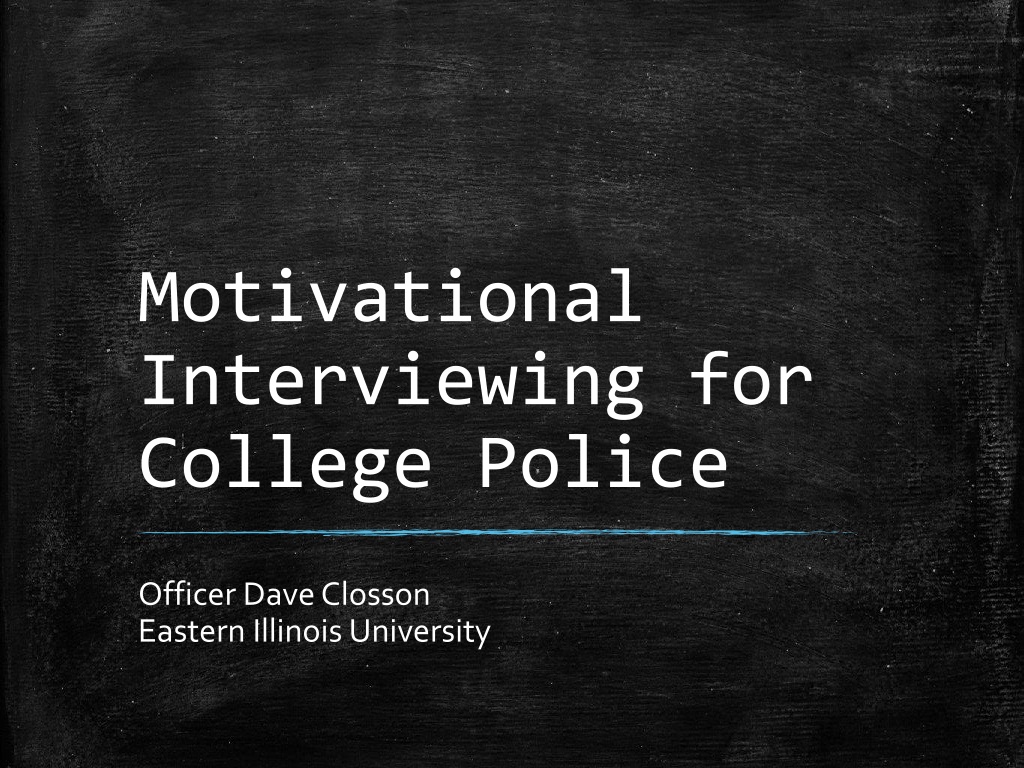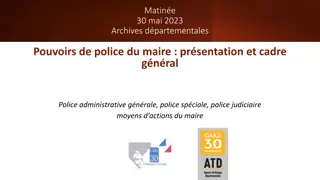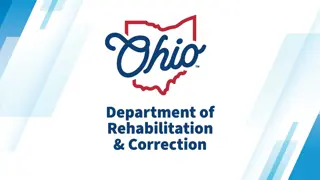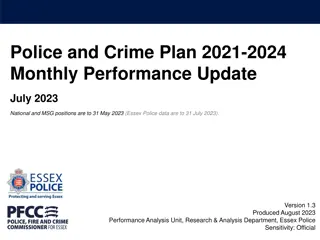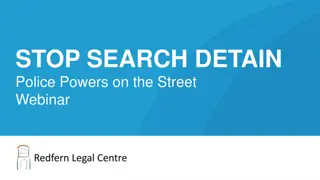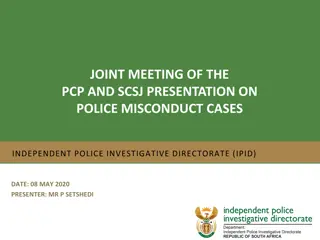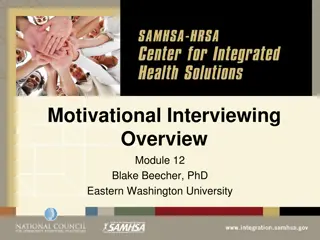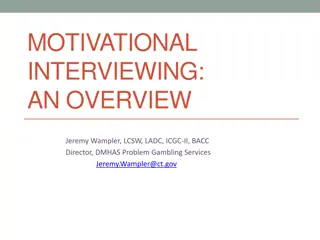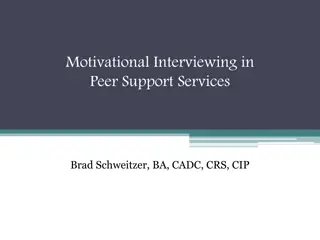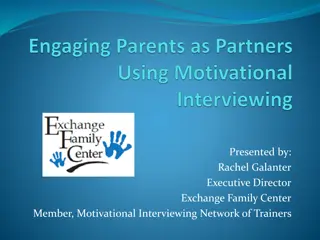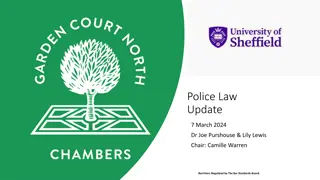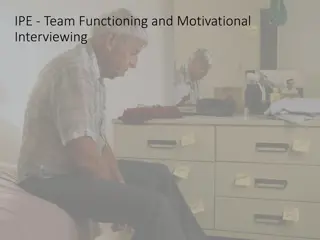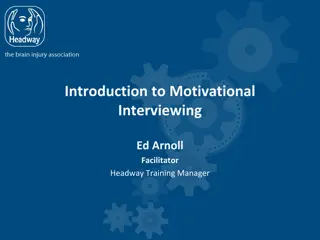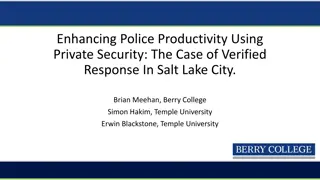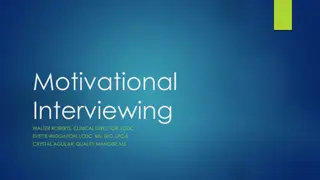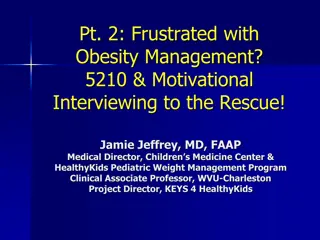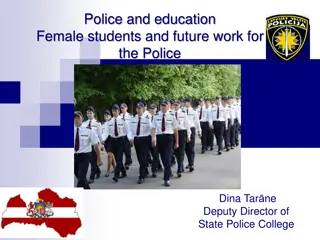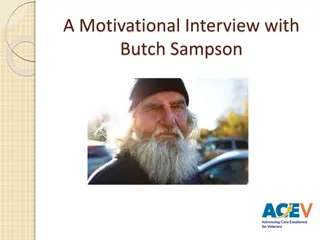Motivational Interviewing in College Police: The Game Plan
Motivational Interviewing is a person-centered approach to eliciting and strengthening motivation for change. Learn about its background, skills, techniques, and application by college police officers. Discover the fundamental principles and the history of MI in counseling and campus settings, enhancing learning and behavior change through internal motivation.
Download Presentation

Please find below an Image/Link to download the presentation.
The content on the website is provided AS IS for your information and personal use only. It may not be sold, licensed, or shared on other websites without obtaining consent from the author.If you encounter any issues during the download, it is possible that the publisher has removed the file from their server.
You are allowed to download the files provided on this website for personal or commercial use, subject to the condition that they are used lawfully. All files are the property of their respective owners.
The content on the website is provided AS IS for your information and personal use only. It may not be sold, licensed, or shared on other websites without obtaining consent from the author.
E N D
Presentation Transcript
Motivational Interviewing for College Police Officer Dave Closson Eastern Illinois University
The Game Plan Background of Motivational Interviewing (MI) Learning & Behavior Change MI for Campus Police Skills and Techniques Summary & Reflection
Objectives Fundamental principles of motivational interviewing The skills and techniques of motivational interviewing The application of motivational interviewing by college police
What is Motivational Interviewing A person centered form of guiding to elicit and strengthen motivation for change. (Miller and Rollnick, 2002) It is a way of talking to people that builds their internal motivation to change. It uses questions and statements to think and talk in a positive, forward direction.
A Quick History Counseling Directive, client-centered counseling style. Helping clients explore and resolve ambivalence. Compared to nondirective counseling, it is more focused and goal directed. The resolving of ambivalence is the central goal, and the counselor is pushing towards it. Outperformed traditional advice giving by 80%
A Quick History On campus & Sanctioning Student Affairs Staff Housing etc. Sanctioning Example BASICS One on one sessions
Learning & Behavior Change Combining law enforcement and education Court System Student Standards / Judicial Affairs Police in the field
Learning & Behavior Change Motivation is all internal A person convinced against their will . Change your perspective; Change your behavior
Learning & Behavior Change Story Time Presentations DUI/Alcohol Double Lung Transplant
MI for Campus Police What are Police? Skilled communicators Problem Solvers Lie detectors
MI for Campus Police The goal for police interactions 15 minutes or less, 64 percent Be opportunistic!! Sometimes providing good information badly
Taking it to the Next Level MI Style Express empathy Roll with resistance Develop discrepancy Support self efficacy
Taking it to the Next Level MI-OARS Open ended questions Affirmations Reflections Summaries
Taking it to the Next Level MI Motivation Forward focus Raise interest Things to scale Giving advice without telling what to do Linking talk to action
Summary Police already have the skills Small changes Reflection time
Questions???? Contact information: Officer Dave Closson djclosson@eiu.edu
References Walters, S., & Baer, J. (2006). Talking with college students about alcohol. New York: The Guilford Press. Walters, S., Clark, M., Gingerich, R., & Meltzer, M. (2007). Motivating offenders to change. Washington DC: U.S, Department of Justice National Institute of Corrections. Sciacca, K. (2009). Motivational interviewing - glossary and fact sheet.
